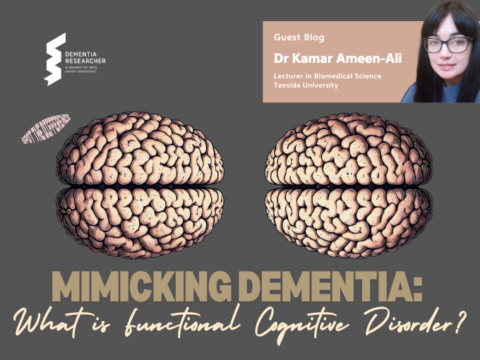
Nadine Mirza
Name:
Nadine Mirza
Job title:
I am a postgraduate researcher and research assistant
Place of work / study:
I am based at the Centre for Primary Care and Health Services Research at the University of Manchester and also work with the Department of Clinical Neuropsychology at Salford Royal NHS Foundation Trust
Area of Research:
My research explores cognitive testing in ethnic minorities and the experience of dementia diagnosis and access to dementia services in British South Asians
How is your work funded?
My work is funded by the Medical Research Council.
Tell us a little about yourself:
I am a research psychologist and writer, but also an aspiring clinical and occupational psychologist- I’m all about creating a multidisciplinary career! I graduated from the University of Manchester with a BSc in Psychology and an MPhil in Primary Care Mental Health. I am currently working towards my PhD in Mental Health, funded by the MRC.
My research across my MPhil and within my PhD focuses on cognitive testing within ethnic minorities and improving British South Asians access to dementia services and receiving an accurate diagnosis (DOME: Dementia in Ethnic Minorities). I use my research to investigate how ethnic minorities are being let down by the current system and what measures can be taken to address this.
Much of this work has led to my interest in ethnic minorities experiences within mental health services overall, from biased diagnosis to struggles with access. Because of this I am also on the committee for the British Psychological Society’s Minorities’ Group and have developed and am leading on the independent project IMAN: Improving Minorities Access to Neuropsychological services.
When I’m not doing research I love writing about it.
Tell us a fun fact about yourself:
I can play the violin- I learnt it at a young age because it was an excuse to get out of extra math class.
Why did you choose to work in dementia?
The “plan” was never to work in dementia – I fell into it. When applying for Masters I was simply trying to get on to a good programme and I just happened to match well with a supervisor who was interested in ethnic minorities with dementia. It started off as a one year commitment.
Five years later, there are now many reasons. My initial research work exposed to me how disadvantaged ethnic minorities are when attempting to access help for dementia, or even when trying to receive an accurate diagnosis. The blame on not availing dementia services is put on these communities despite the services not being designed for them, the tests used to diagnose dementia not being created for non White non-English speaking groups, and the information provided having no consideration and sometimes no respect for their culture and beliefs. I grew incensed but also passionate about this unlevel playing field ethnic minorities were being forced on to and what my research could potentially do to mitigate some of this.
Over the last few years my grandmother has also developed dementia, and is in the severe stages of Alzheimer’s Disease. Being aware of dementia, what it does and how to communicate with someone who has it, became precious knowledge that my family and I clung to as we try to support her. Working in dementia is no longer just a professional matter anymore, it’s also personal.

 Print This Post
Print This Post





